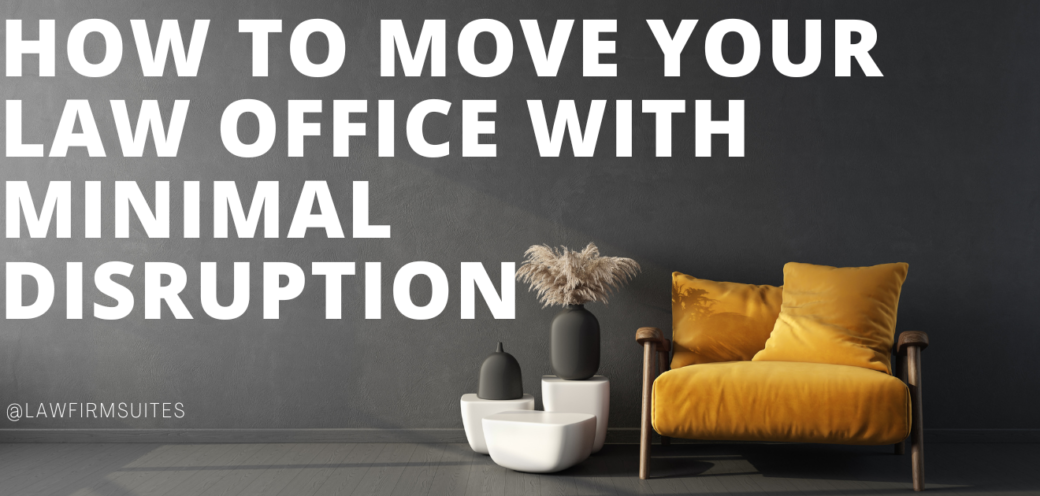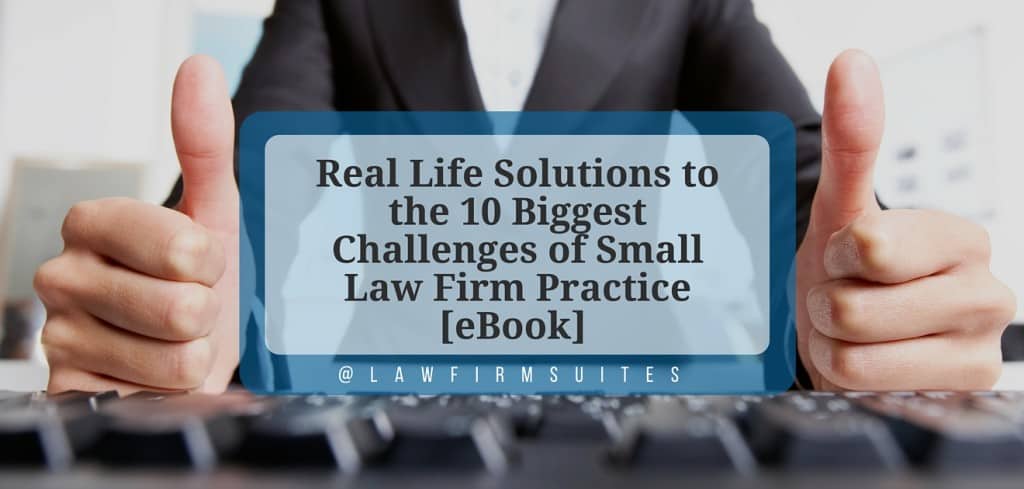Follow these five pieces of advice to help your firm move offices quickly with as few headaches as possible.
Moving your office is about as pleasurable as paying your taxes. Most likely, you barely have enough staff to handle your current caseload, never mind all the additional responsibilities that will come with the move.
That being said, it is obvious that moving your firm to a new office can be a daunting task. To help, we have come up with five quick and easy pieces of advice that will make your move much quicker, and less painful.
The truth about getting rid of used office furniture
Used office furniture has very little value, especially if your office is in a high-rise office building. There is an expense associated with moving used furniture. There is also an expense associated with throwing it away (your landlord will likely charge you dumpster fees to throw away furnishings).
If you have used furnishings you want to unload, try to sell it at a bargain-basement price. Even though you may have paid $1,500 for a desk two years ago, it’s not worth more than $200 now.
As it gets closer to moving day and you still have furniture to get rid of, consider just giving your stuff away in exchange for the recipient removing it at their expense.
Carefully plan and organize your move
Don’t just pack and bring everything. Think about it first.
Go through your office and note any items you want to bring with you to the new office. Create a spreadsheet with a column for the item description, and also include the estimated weight, fragility, value, serial number, and which room it is in and where it is going.
As you pack up your office, you will add to this spreadsheet and include codes to help your movers and to help you unpack.
Starting your move early gives you more time to decide what you want to bring to your new office. Start packing early and use this as an excuse to make sure all of your files are in order.
Lastly, get rid of files you no longer need or use this as an opportunity to digitize some of your records. Set a date for staff to remove their personal items, and have them help by packing up their individual work spaces.
Beware the $30 lamp shade box
One of the benefits of hiring movers is that they can do the “finish” packing quickly. This being said, appoint an employee to supervise the packing on your moving day.
After a recent move, we unpacked a huge “wardrobe” box filled with packing paper only to find one lampshade that had a $2 replacement value. Was the lampshade delicate? I guess so. Was the packing overkill? Absolutely. The cost for the extra box, which was not included in our contract, was about $30.
Just a few “lampshade boxes” can result in a material increase in your moving cost. Even if the cost for extra boxes is included in your contract, at the very least, it’s a waste of time and resources.
Hire a moving company
Unless you are starting a firm for the first time and the only thing you need to move is your computer, hire a moving company.
Starting the packing process is easy, but after a while, you can get bogged down in your stuff. Moving companies are not emotionally attached to your things, and they are experts at “finishing.” They come into your office with a bunch of guys, move out the packed boxes, safely pack the rest of the stuff in boxes and quickly get all your things out of the office.
The cost of their billable hour is significantly less than yours, so let the experts handle the heavy lifting. Literally
Make your moving company reservation early
Moving companies are typically reserved on a first-come-first-served basis. Even if you don’t yet know where you’re moving to, you can still reserve a moving company. If you are unsure of the exact moving date, set up multiple moving dates and have them “on-hold” with the moving company.
You may have to pay a small cancellation or reservation fee for each date. But this fee will be significantly less than your own billable time that will be wasted if you can’t find a mover last minute.
No move is stress-free or completely simple, no matter how ready you may be. But if you follow these tips, you’ll be more prepared to move, move more efficiently and your firm will be able to get back up and running with little disruption.


